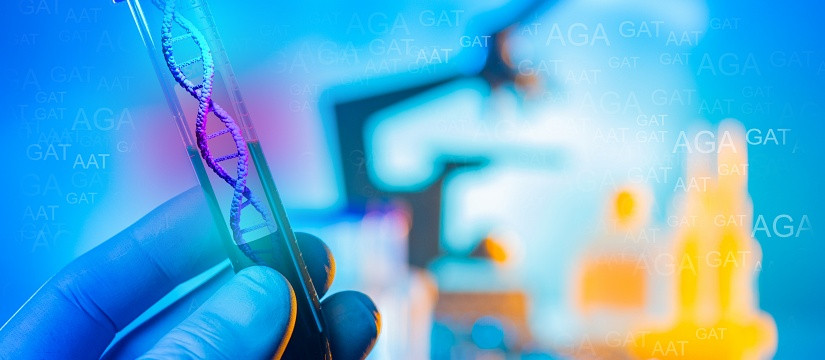Preimplantation genetic diagnosis (PGD) is a vital reproductive technology that allows for the screening of embryos for specific genetic conditions before they are implanted during in vitro fertilization (IVF). By identifying embryos that carry genetic abnormalities, PGD helps couples minimize the risk of passing on hereditary diseases and increase their chances of having healthy children. This article explores the various genetic conditions that PGD can test for, providing insight into how this technology works and its significance in family planning.
1. Hereditary Genetic Disorders
1.1. Autosomal Recessive Disorders
PGD is particularly beneficial for couples who are known carriers of autosomal recessive disorders. In these conditions, both parents must carry a copy of the mutated gene for a child to be affected. Examples include:
- Cystic Fibrosis: A genetic disorder that affects the lungs and digestive system, leading to severe respiratory issues and difficulty in digesting food.
- Sickle Cell Anemia: A blood disorder characterized by abnormal hemoglobin, which can cause severe pain, infections, and complications related to blood flow.
- Tay-Sachs Disease: A fatal genetic disorder that causes progressive neurological degeneration, typically affecting children.
1.2. Autosomal Dominant Disorders
In autosomal dominant disorders, only one copy of the mutated gene is needed for an individual to be affected. PGD can help identify embryos at risk for these conditions, including:
- Huntington's Disease: A progressive neurodegenerative disorder that typically manifests in mid-adulthood, leading to motor dysfunction, cognitive decline, and psychiatric symptoms.
- Marfan Syndrome: A connective tissue disorder that can lead to serious cardiovascular, skeletal, and ocular complications.
1.3. X-Linked Disorders
X-linked disorders are caused by mutations on the X chromosome. PGD is useful for families with a history of these conditions, especially when the mother is a carrier. Examples include:
- Hemophilia: A bleeding disorder where the blood does not clot properly due to a lack of sufficient blood-clotting proteins.
- Duchenne Muscular Dystrophy: A severe type of muscular dystrophy that primarily affects boys and leads to progressive muscle degeneration and weakness.
2. Chromosomal Abnormalities
2.1. Aneuploidy
Aneuploidy refers to an abnormal number of chromosomes in the cells. PGD can screen for common aneuploidies, including:
- Down Syndrome (Trisomy 21): A genetic disorder caused by an extra copy of chromosome 21, resulting in developmental delays and various health issues.
- Edward's Syndrome (Trisomy 18): A serious condition caused by an extra chromosome 18, leading to severe developmental and health complications.
- Patau Syndrome (Trisomy 13): Another serious condition caused by an extra chromosome 13, which can result in severe intellectual disability and physical defects.
2.2. Structural Chromosomal Abnormalities
PGD can also be used to identify structural chromosomal abnormalities, such as:
- Translocations: When a piece of one chromosome breaks off and attaches to another chromosome, which can lead to fertility issues or increased risk of genetic disorders in offspring.
- Inversions: When a chromosome segment breaks off, flips around, and reattaches, which may lead to issues in fertility or abnormal embryonic development.
3. Specific Genetic Mutations
3.1. Targeted Testing
In some cases, PGD can be used for targeted testing of specific known mutations associated with hereditary conditions. This is particularly relevant for families with a history of:
- BRCA Mutations: Women with BRCA1 or BRCA2 mutations have a significantly increased risk of breast and ovarian cancer. While PGD cannot prevent these cancers, it can help identify embryos free from these mutations.
- Familial Hypercholesterolemia: A genetic condition that leads to high cholesterol levels and an increased risk of heart disease. PGD can identify embryos that do not carry the mutation associated with this disorder.
4. Testing for Carrier Status
4.1. Carrier Screening
Before undergoing PGD, couples may undergo carrier screening to determine if they carry mutations for specific genetic conditions. If both partners are found to be carriers of the same autosomal recessive condition, PGD can then be used to screen embryos for that specific condition. This proactive approach can significantly reduce the risk of having an affected child.
5. Ethical Considerations
While PGD offers numerous benefits, it also raises ethical considerations. Couples may face dilemmas regarding the fate of embryos found to have genetic abnormalities. Decisions about whether to discard, freeze, or use these embryos in future treatments can be emotionally challenging. Engaging in discussions with healthcare providers about these ethical concerns is essential for making informed choices.
Preimplantation genetic diagnosis (PGD) is a powerful tool that offers couples at risk of hereditary diseases the opportunity to select healthy embryos for implantation. By enabling the screening of embryos for a wide range of genetic conditions—including autosomal recessive and dominant disorders, X-linked disorders, chromosomal abnormalities, and specific genetic mutations—PGD significantly enhances the chances of having a healthy child.
As genetic testing technology continues to evolve, the range of conditions that can be tested for through PGD is likely to expand. This will provide even greater options for couples seeking to build families while minimizing the risk of genetic disorders. While PGD offers hope and possibilities, it is essential for individuals and couples to engage in open discussions with their healthcare providers, understand the emotional and ethical implications, and make informed decisions regarding their reproductive options. With ongoing advancements in reproductive technology, PGD remains a key component in the pursuit of healthy pregnancies and families, offering a brighter future for those facing genetic challenges.
 Clinic Booking
Clinic Booking


 No Record
No Record